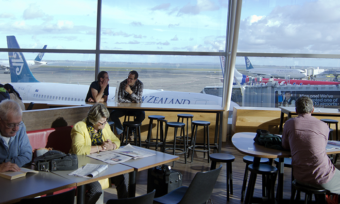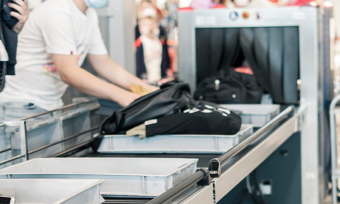If you are planning a trip overseas or within New Zealand, travel insurance is an important consideration. But what is travel insurance and what cover does it provide? We look into different travel insurance policies and what they cover.
What is travel insurance?
Travel insurance is a form of insurance that covers you financially for the loss or theft of your possessions while overseas, plus any unforeseen essential medical expenses you might incur.
Travel insurance providers offer a range of products, from basic policies that cover just emergency medical expenses, through to comprehensive travel insurance policies that can include cover for losses incurred due to last-minute itinerary changes and personal liability protection, which covers costs incurred by third parties due to your actions.
How does travel insurance work?
Many travellers organise their travel insurance at the same time as their travel plans. This enables them to get a clear understanding of the cover required and the costs involved. For as the New Zealand Government’s SafeTravel website advises: “Take out travel insurance … If you can’t afford travel insurance, you can’t afford to travel.”
When choosing the correct level of cover for your holiday plans, it’s recommended to thoroughly read the travel insurance policy’s product disclosure statement (PDS), to get a clear idea of what is and isn’t covered under the terms of the policy. For example, if you’re planning a winter sports holiday, it would be prudent to check if you need to purchase additional cover for the type of activities you plan, such as on- or off-piste skiing.
The PDS will also contain all of the details required to make a claim. For example, should any of your possessions get lost or stolen while you’re away, you’ll need to tell the relevant authorities as soon as possible, and obtain a written report, such as a police report, to make a claim on your insurance.
Also if you require any serious medical treatments while overseas, you must immediately notify your travel insurance provider. Many overseas medical centres will not accept foreigners without proof of their medical insurance cover, or demand payment upfront, even in an emergency. Therefore, it could be a good idea to ensure you have access to multiple copies of your policy’s PDS while away. For example, take a printed copy with you and have another copy on your phone, or accessible in the cloud.
In the event you need to make a claim on your policy, most travel insurance providers offer online claims functionality and 24-hour emergency phone numbers. Generally, the more documentation you can provide to support your claim, the quicker and smoother the claims process.
What are the different types of travel insurance?
Travel insurance breaks down into three main categories:
International travel insurance
This covers a policy holder for travel to a specific overseas destination. It usually covers a single trip for a set time period. Comprehensive international travel insurance generally covers possessions, medical cover and personal liability.
Domestic travel insurance
Covers destinations within Aotearoa, usually for a single trip and a set period of time. Comprehensive domestic travel insurance generally covers possessions and personal liability, but not medical cover, which is covered by the public health system.
Cruise travel insurance
Cruise travel insurance is sometimes sold as a separate insurance product, or as an add-on level of cover. Comprehensive cruise insurance generally covers possessions, personal liability and medical cover, including evacuation at sea.
It’s worth noting that some cruise ships won’t let you board without cruise-specific insurance, so you might want to check with your holiday provider before booking to see what cover you need. Government or private health insurance may not cover you while on a cruise, even in New Zealand waters.
Other travel insurance products include:
Medical-only policies: as the name suggests, such policies only provide cover for medical treatments, and often personal liability, and not for a traveller’s possessions. Due to their limited cover, these policies are generally cheaper than comprehensive policies.
Multi-trip policies: provide cover for multiple trips within a set period, and can cover multiple destinations. For frequent travellers, a multi-trip policy can work out cheaper than purchasing individual single-trip policies.
Working overseas policies: offer the benefits of standard travel insurance policies, but with extended timeframes suited to those spending long periods living and working overseas.
What does travel insurance cover?
Most comprehensive travel insurance policies provide cover for:
Medical and dental treatment expenses: admission to hospital, medical treatments, emergency dental work and evacuation/repatriation to New Zealand.
Stolen or lost luggage and travel documents: the cost of replacing personal possessions or travel documents, such as passports, lost or stolen overseas.
Unforeseen cancellation or amendment of holiday plans: changes to itineraries, caused by unforeseen events, such as bad weather, accidents or illness, can be expensive.
Legal liability: covers for accidental damage you cause to people, or their property, while you’re overseas. This can include related legal fees.
Rental car excess: the cost of meeting any excess on a hire car in the event of accidental damage or an accident.
As no two travellers, or their holidays plans, are alike, most travel insurance policies can be tailored to suit personal itineraries. Common optional cover extras include:
- Snow and adventure sports
- Riding a motorbike or moped
- Cruise cover
- Cover for individual high-value personal items
- Existing medical conditions
- Late-term pregnancy
What does travel insurance not cover?
Most comprehensive travel insurance policies won’t cover you for losses due to:
Do not travel warnings: cover usually doesn’t extend to countries or regions for which the NZ Government has issued a do-not-travel or a reconsider-travelling warning. It’s a good idea to check the status of your destination at the SafeTravel website before you travel.
Failing to take due care: taking risks or intentionally putting yourself, others and property at risk. For example, leaving your possessions unattended where they can be easily stolen.
Failing to report your losses: you’ll need to report any losses or thefts to the relevant authorities when they occur and, if possible, obtain an official or police report. Your insurer will require documentation to support your claim.
Unlawful acts: any claim made due to you acting unlawfully is likely to be rejected.
Riding a motorcycle or moped without a helmet or appropriate licence: even if you take out extra moped/motorbike cover, you’ll still need to hold an NZ driver licence that permits you to ride a comparable bike at home. You must also wear a helmet.
Intoxication: any claim made for injury or loss due to intoxication is likely to be rejected.
Pre-existing health conditions: standard travel insurance policies will not cover pre-existing serious health conditions. However, many offer additional policy add-ons for those with long-term health issues.
Pregnancy: medical costs arising from late-term pregnancies are usually only covered by optional policy extras.
Elective surgery: if you head overseas for cosmetic surgery or other medical procedures expenses incurred due to any issues that arise will not be covered.
Do you need travel insurance for Australia?
The short answer is yes. If you’re travelling to Australia, it’s a good idea to purchase travel insurance to cover your possessions and any possible medical-related costs you might incur while overseas.
While Kiwis are eligible for free emergency hospital treatment in Australia under our governments’ Reciprocal Health Agreement, New Zealanders visiting Australia still have to pay for non-hospital treatments, such as visits to a doctor or medical centre, and repatriation, which is a very expensive process.
Compare Travel Insurance with Canstar
 About the author of this page
About the author of this page
Bruce Pitchers is Canstar NZ’s Content Manager. An experienced finance reporter, he has three decades’ experience as a journalist and has worked for major media companies in Australia, the UK and NZ, including ACP, Are Media, Bauer Media Group, Fairfax, Pacific Magazines, News Corp and TVNZ. As a freelancer, he has worked for The Australian Financial Review, the NZ Financial Markets Authority and major banks and investment companies on both sides of the Tasman.
In his role at Canstar, he has been a regular commentator in the NZ media, including on the Driven, Stuff and One Roof websites, the NZ Herald, Radio NZ, and Newstalk ZB.
Away from Canstar, Bruce creates puzzles for magazines and newspapers, including Woman’s Day and New Idea. He is also the co-author of the murder-mystery book 5 Minute Murder.







Share this article